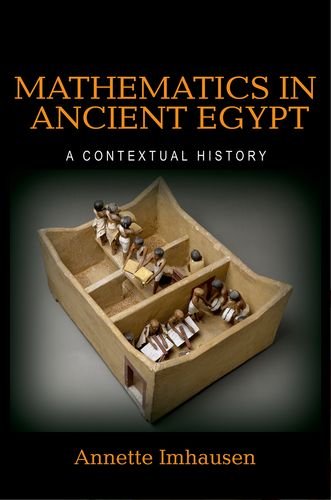Description
Mathematics in Ancient Egypt traces the development of Egyptian mathematics, from the end of the fourth millennium BC―and the earliest hints of writing and number notation―to the end of the pharaonic period in Greco-Roman times. Drawing from mathematical texts, architectural drawings, administrative documents, and other sources, Annette Imhausen surveys three thousand years of Egyptian history to provide an integrated picture of theoretical mathematics on the subject of the day-to-day practices of Egyptian life and social structures.
Imhausen shows that from the earliest beginnings, pharaonic civilization used numerical techniques to efficiently regulate and use their material resources and labor. Even all through the Old Kingdom, quite a lot of metrological systems had already been devised. By the Middle Kingdom, procedures had been established to teach mathematical techniques to scribes with the intention to cause them to proficient administrators for their king. Imhausen looks at counterparts to the notation of zero, suggests an explanation for the evolution of unit fractions, and analyzes concepts of arithmetic techniques. She draws connections and comparisons to Mesopotamian mathematics, examines which people in Egyptian society held mathematical knowledge, and considers which scribes were trained in mathematical ideas and why.
Of interest to historians of mathematics, mathematicians, Egyptologists, and all those fascinated about Egyptian culture, Mathematics in Ancient Egypt sheds new light on a civilization’s unique mathematical evolution.













































